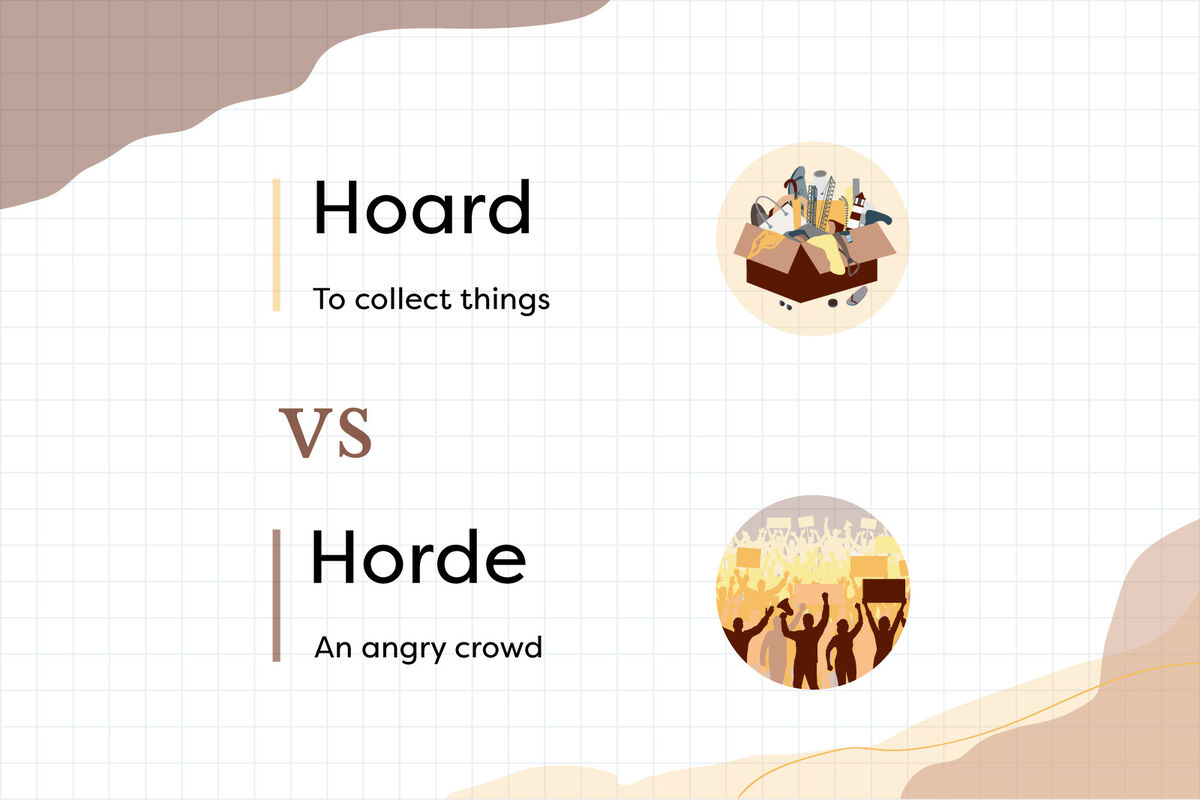
There’s a big difference between a hoard of cats and a horde of cats. One is a houseful of sleeping, adorable kitties — and one is a stampede of angry, pillaging (and yet still adorable) felines. It’s easy to mix up hoard and horde, but just like every one of those smooshy cat faces you know and love, they’re totally different.
Hoard: Treasure
The word hoard comes from the Old English hord, meaning “hidden treasure.” The Old English verb form hordian describes “amassing valuable items for future use” — a word that aligns nicely with our modern use of hoard.
Hoard also relates to hoarding disorder, a mental health condition in which people feel the compulsion to save items, regardless of their monetary value. It can be detrimental to a hoarder’s physical health as well as their psychological health, as they may accumulate so many items (or unclean items) that it impacts their living area.
‘Hoard’ Is Usually a Verb
Typically, you’ll see hoard used as a verb, though it does sometimes function as a noun. For example:
- The art teacher hoards empty paint cans every year for her big spring project. (verb)
- If a small percentage of people hoards the country’s wealth, the rest of the population can’t afford to live there. (verb)
- The pirates kept their hoard of gold and silver buried on a deserted island. (noun)
- My hamster keeps a hoard of seeds and nuts in her nest. (noun)
Synonyms for ‘Hoard’
If you don’t want to use hoard, try out these words instead:
- accumulate - to collect items
- accrue - to allow a collection of things to grow
- cache - a hidden accumulation
- ensconce - to secretly take and hide away
- procure - to carefully obtain
- stash - to hide something away
Horde: Angry Mob
Horde is a homophone with hoard, but it has a completely different origin. It comes from the Turkish ordu and Polish horda, meaning “camp of nomadic troops,” and describes an uncivilized mob or army that travels together to rob or destroy villages. Today, it refers to a large group of people, though its connotation is still negative (though less pillaging is involved).
‘Horde’ Is Usually a Noun
Unlike hoard, the word horde usually functions as a noun, with a secondary usage as a verb (“to become a horde”). For example:
- A horde of muscular football players rushed the field and slammed into the quarterback. (noun)
- The townspeople ran from the horde of drooling zombies. (noun)
- Every evening, the crows horde together to protect their eggs from the nearby hawks. (verb)
- We should be careful about making this announcement to cancel prom so the students don’t horde up and revolt. (verb)
Synonyms for ‘Horde’
Want to describe an enraged mob but horde is a little harsh for you? Try out:
- assemblage - an organized group of people with similar interests
- concourse - a crowd of people
- legion - a large, passionate group of people
- scrum - a disorderly group
- slew - an uncountable number of people
- throng - a large and unruly group of people
Hoard More Valuable Vocabulary
You may not want to hoard cats, lest they become a horde — but there’s nothing wrong with hoarding some strong vocabulary. Next, check out: